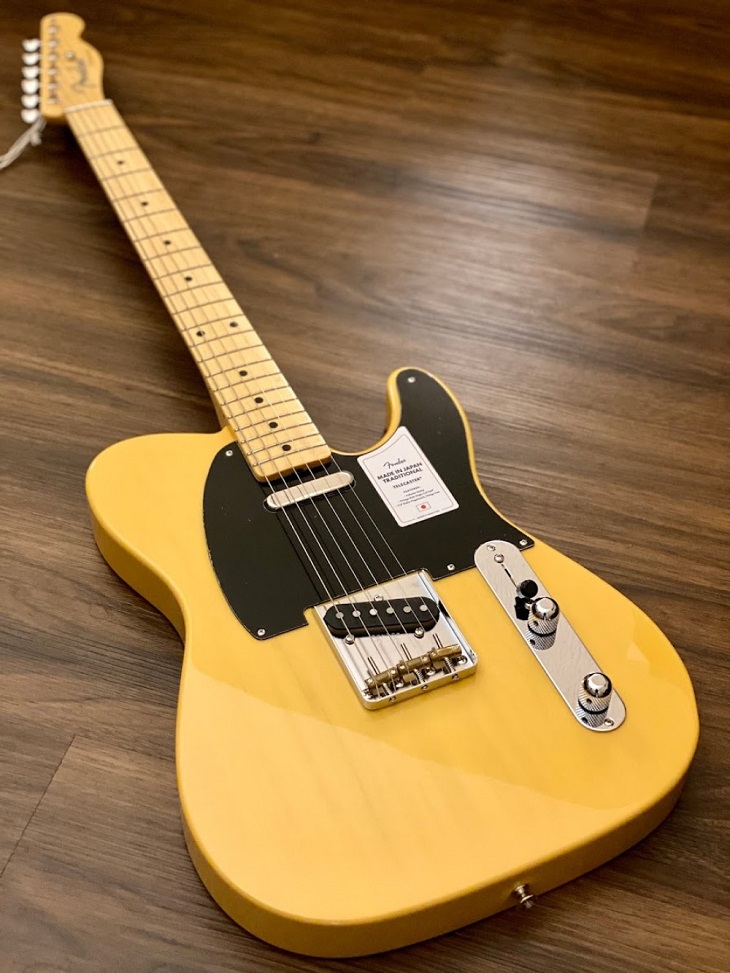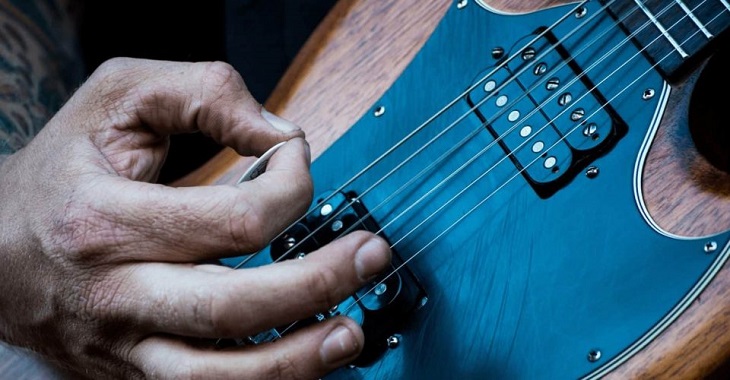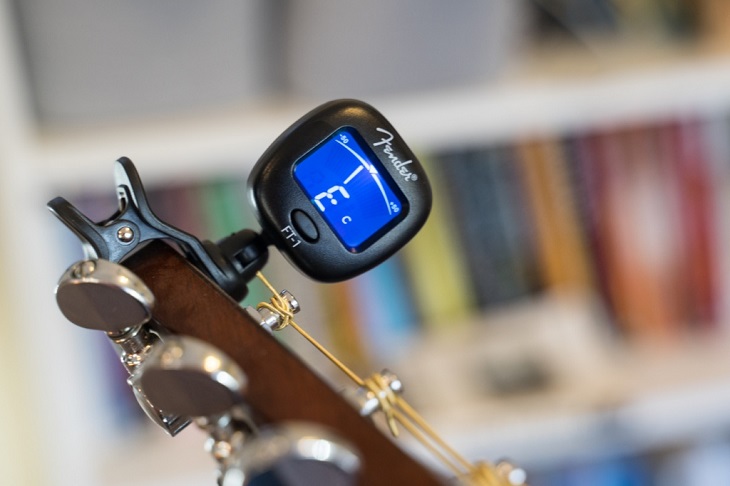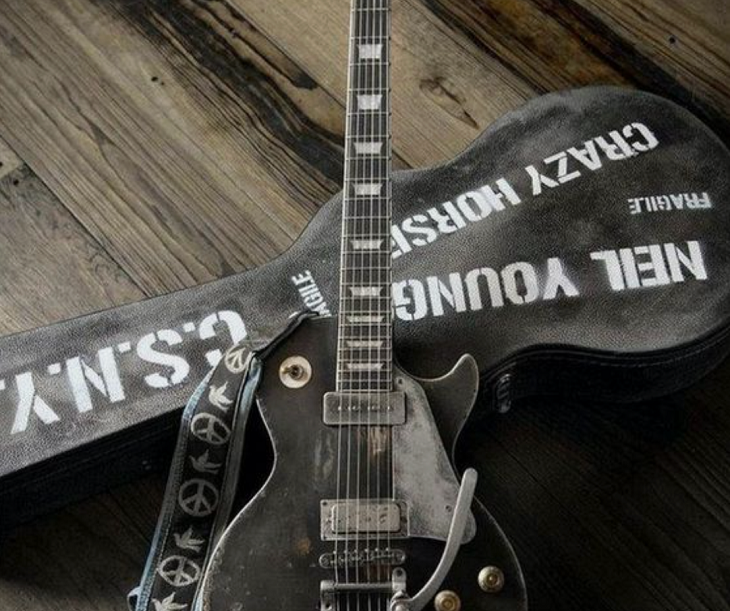30
Oct

Every beginning is hard, especially learning a new skill such as guitar playing. However, taking those initial steps can be incredibly rewarding, as this hobby has various benefits. Not only does it offer a therapeutic escape from stress, but it also fosters creativity and enhances discipline.
Before you embark on the journey of learning to play the guitar, it’s crucial to have the basic essentials for beginners. While you’ll eventually consider upgrades, these initial necessities are all you need to set yourself up for a successful start.

A beginner-friendly guitar is of critical importance for those just starting their journey into the world of music. Learning to play the guitar can be challenging, and having the right instrument can make a significant difference in a beginner’s experience and progress.
A beginner-friendly guitar is designed with simplicity and ease of use in mind. It typically features a comfortable neck profile and a low action (the distance between the strings and the fretboard), which makes it easier for novice players to press down the strings and form chords. This reduces the initial discomfort and finger fatigue that can discourage beginners.
Additionally, a beginner-friendly guitar should have a straightforward design with minimal bells and whistles. This simplicity eliminates distractions, allowing beginners to focus on the core fundamentals of playing, such as chord changes and strumming patterns.
One ideal option for beginners is the user-friendly yet widely sought-after Fender Telecaster Japan model. This guitar combines the classic design and reliability of a Fender Telecaster with the affordability of the Japanese-made version. The Fender Telecaster is renowned for its simplicity and durability making it an excellent choice for new guitarists. The Fender Telecaster Japan is also known for its versatility and is used in a wide range of music genres. It can be a great choice for beginners who want to explore different styles of music.
The Fender Telecaster Japan offers a comfortable playing experience with its well-crafted neck and comfortable body shape, making it a relatively easy guitar to learn. Its straightforward layout and iconic single-coil pickups provide a clear, clean sound that’s perfect for beginners.
Moreover, the quality of Fender Japan guitars is well-regarded, ensuring that beginners have a reliable instrument that will last through their early learning stages and beyond. The affordability of the Fender Telecaster guitar makes it accessible to those starting their guitar-playing journey without breaking the bank.
It has a timeless design that has remained virtually unchanged since its inception in the 1950s. This makes it a classic choice for those who appreciate traditional and vintage aesthetics, while also being an excellent option for modern music production. It Japan model offers the best of both worlds with its timeless design and modern features.
In addition to its iconic sound and design, the Fender Telecaster Japan also offers a variety of finish options and customization possibilities. This allows beginners to choose a guitar that truly reflects their personal style and musical preferences. It acts as a canvas for artistic expression and can inspire creativity in new guitarists.
Furthermore, this particular model offers good value for money. With its high-quality construction and reliable performance, it is a long-term investment that will serve beginners well in their musical journey. It also holds its value better compared to other beginner-level guitars, making it a smart choice for those who may want to upgrade or sell their guitar in the future.

Guitar picks are an important part of your gear as they can make a huge impact on both your tone and playing comfort. While often overlooked, picks are vital tools that are essential for beginners.
When choosing picks, think about their shape, thickness, and material. Thin picks create a brighter, lighter tone, while thicker picks result in a fuller, warmer sound. Select picks that suit your musical style or if you are still unsure of your style, experiment with different options to find your perfect fit.
Common pick materials include plastic, nylon, celluloid, metal, and wood. Plastic picks are versatile, while metal picks produce a sharp tone. Some popular guitar pick shapes include standard, teardrop, jazz, triangle, and sharkfin. Ultimately, the choice depends on your playing style and tonal preferences, so trying out different picks can help you discover what works best for you.

A tuner is an essential tool for beginners learning to play the guitar as it ensures your guitar strings are at the right pitch. Starting with a well-tuned guitar is super important because it helps your ear get used to the right sound. It also makes sure that the notes and chords you’re learning sound good, allowing you to progress more effectively and build a solid foundation.
Tuners come in various forms, from clip-on digital tuners to smartphone apps, making them readily accessible and user-friendly for novice players. Clip-on digital tuners attach to your guitar’s headstock and provide a visual indicator, while smartphone apps offer both visual and audio feedback, allowing you to tune accurately with ease.

A guitar strap may seem like a simple accessory, but it plays a crucial role in comfort and convenience, especially for beginners. Using a strap allows you to play while standing, which is essential if you plan to perform or play in a band. It also helps distribute the weight of the guitar, reducing strain on your neck and shoulders during longer practice sessions. Even for sitting players, a strap can help stabilise the guitar and prevent it from sliding.
A guitar case is essential as it offers protection to your instrument. It shields the guitar from dust, moisture, and potential physical damage when not in use. For beginners, a case is especially valuable because it keeps the guitar safe during transport and storage. Whether you’re travelling to lessons or storing your guitar at home, a case helps maintain the instrument’s condition and can extend its lifespan.
Guitar strings wear out over time, especially as you practice and play regularly. They can break, lose their tone quality, or become corroded from sweat and oil from your fingers. When a string breaks or sounds dull, it affects your playing and the overall sound of the guitar.
With that in mind, having replacement strings on hand is essential for ensuring uninterrupted practice and maintaining the guitar’s sound quality. As a beginner, you’ll likely encounter situations where you need to replace a string, and knowing how to do it is a valuable skill. Therefore, it’s good practice to keep a set of spare strings that match your guitar’s string gauge and type, so you can quickly replace a worn or broken string and continue your learning journey.
A beginner guitarist should start by learning the fundamental basics. Understanding the guitar’s anatomy, including the fretboard, strings, and tuning, is crucial. Mastering basic chords like E, A, and D, and developing the ability to switch between them smoothly is essential. Learning basic strumming patterns and fingerpicking techniques helps build rhythm and coordination.
Reading guitar tablature and basic music notation is also valuable. Another highly beneficial skill is ear training to recognise and replicate simple melodies or chord progressions by ear. Above all, beginners should focus on consistent practice and patience as they gradually progress from the basics to more advanced techniques and songs.